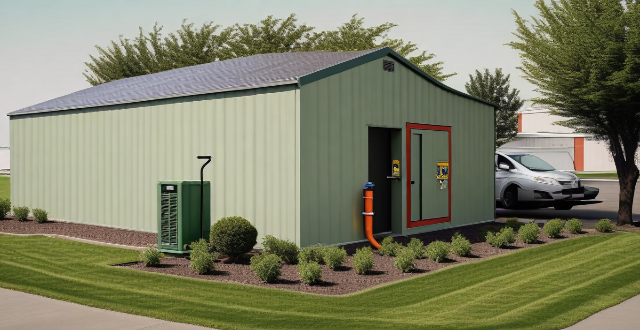Energy efficiency is crucial for mitigating climate change and enhancing energy security. It reduces greenhouse gas emissions by decreasing fossil fuel consumption, lowering energy production needs, and promoting renewables. Energy efficiency also contributes to energy security by diversifying sources, reducing costs, and improving system reliability.

Relationship between Energy Efficiency and Climate Change
Energy efficiency refers to the use of less energy to perform the same task or to provide the same level of service. It is often measured in terms of the amount of energy required to produce a unit of output, such as miles per gallon for vehicles or kilowatt-hours per square foot for buildings. Improving energy efficiency can reduce greenhouse gas emissions, which are a major driver of climate change.
Impact on Greenhouse Gas Emissions
- Reduction in Fossil Fuel Consumption: By using energy more efficiently, there is a direct reduction in the consumption of fossil fuels like coal, oil, and natural gas. This leads to fewer emissions of carbon dioxide (CO2) and other greenhouse gases during the combustion process.
- Lowered Energy Production: When less energy is needed to power homes, businesses, and industries, there is a decreased demand for energy production. This means fewer emissions from power plants and other energy generation facilities.
- Increased Use of Renewables: As energy efficiency improves, it becomes more feasible to integrate renewable energy sources into energy systems, further reducing reliance on fossil fuels.
Contribution to Energy Security
Energy security is defined as the uninterrupted physical availability at a price affordable to all users. Energy efficiency plays a crucial role in enhancing energy security through several mechanisms:
Diversification of Energy Sources
- Decreased Dependence on Imported Fuels: By increasing energy efficiency, countries can reduce their dependence on imported fuels, making them less vulnerable to supply disruptions and price fluctuations.
- Promotion of Local Energy Production: Efficient use of energy encourages the development of local energy resources, including renewable energy projects that are typically less subject to geopolitical risks.
Reduction in Energy Costs
- Lower Operational Expenses: Efficient devices and practices lead to lower energy bills for households and businesses, increasing economic stability and resilience.
- Investment in Efficiency Infrastructure: Long-term investments in energy-efficient infrastructure can protect against future energy price shocks by locking in lower operating costs.
Improved System Reliability
- Reduced Strain on Infrastructure: More efficient energy use reduces the strain on transmission and distribution systems, decreasing the likelihood of blackouts and brownouts.
- Increased System Flexibility: Efficient energy systems are often more flexible, allowing for better integration of variable renewable energy sources and improving overall system reliability.
In summary, energy efficiency is closely linked with both climate change mitigation and energy security enhancement. By reducing greenhouse gas emissions and fostering a more sustainable and reliable energy system, energy efficiency is a critical component of addressing these interrelated challenges.